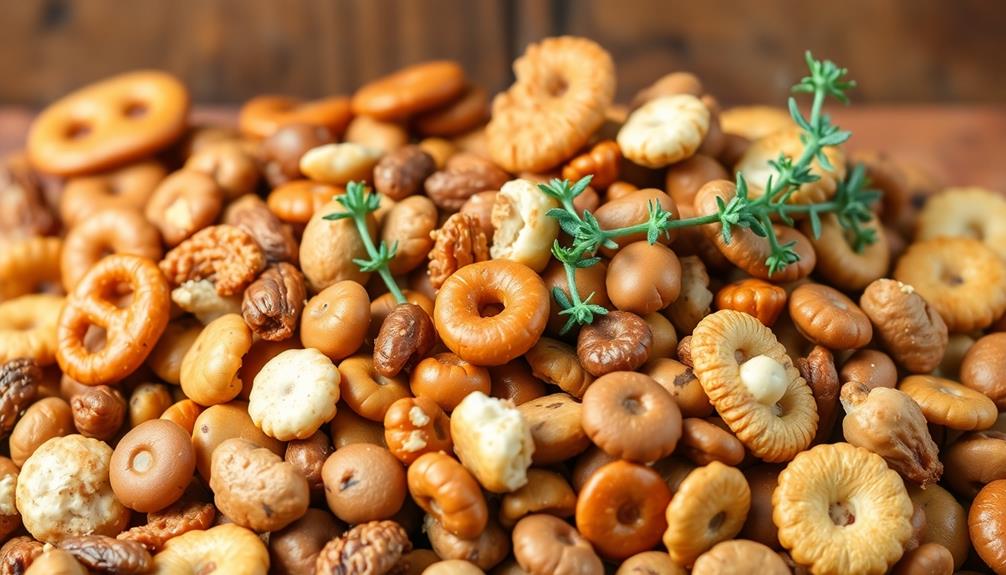I have always liked using butter. It adds a rich, creamy flavor to my favorite dishes. However, I have started to wonder: When does butter become too much?
It turns out, the answer isn’t as straightforward as I thought. According to recent studies, consuming excessive amounts of butter can have negative health effects.
In this article, we’ll explore the nutritional value of butter, the risks of overconsumption, and guidelines for proper portion sizes.
So let’s dig in and find the right balance between indulgence and health!
Key Takeaways
- Butter’s high saturated fat content can increase LDL cholesterol levels.
- Excessive butter consumption can lead to weight gain.
- Diets high in saturated fats like butter can increase the risk of heart disease.
- Moderation is key when consuming butter.
The Butter Dilemma: Finding the Right Balance
Finding the right balance of butter is essential when trying to determine how much is too much. While butter adds a rich and creamy flavor to dishes, it is important to be mindful of its high saturated fat content.
When it comes to finding alternatives, there are several options available. One popular alternative is olive oil, which is a healthier choice as it contains monounsaturated fats that can help improve heart health. Another option is using spreads made from plant-based oils, such as avocado or almond spreads. These spreads provide a similar creamy texture without the high saturated fat content found in butter.
Managing intake is also crucial. Portion control is key, as even healthier alternatives can still contribute to weight gain if consumed excessively. It is recommended to consult with a healthcare professional or registered dietitian to determine the appropriate amount of butter or alternative spreads to include in your diet.
Understanding Butter’s Nutritional Value
When it comes to butter, there are a few key points to consider. Research has shown that butter, due to its high saturated fat content, can contribute to an increase in LDL cholesterol levels, which is often referred to as ‘bad’ cholesterol. This can have an impact on cholesterol levels. Additionally, butter is calorie-dense, and consuming it in excess can lead to weight gain. However, it’s worth noting that there are alternatives to butter, such as plant-based spreads, that offer similar taste and texture while being lower in saturated fat and cholesterol. These alternatives have their associated benefits.
Butter and Cholesterol
You might be wondering if eating too much butter can affect your cholesterol levels. Well, let’s look at the evidence.
Butter is high in saturated fat, which is known to increase LDL cholesterol levels. LDL cholesterol is often referred to as ‘bad’ cholesterol because high levels can lead to plaque buildup in the arteries.
However, research has shown that butter consumption does not significantly affect triglyceride levels, which are another type of fat in the blood. Triglycerides are linked to inflammation and heart disease risk.
Additionally, studies have found that butter contains certain fatty acids that have anti-inflammatory properties.
While it’s important to consume butter in moderation due to its high saturated fat content, it seems that the impact on cholesterol levels is not as significant as once believed.
Butter and Weight Gain
Eating excessive amounts of butter can contribute to weight gain due to its high saturated fat content.
Butter is primarily composed of saturated fats, which are known to increase levels of LDL cholesterol, or ‘bad’ cholesterol. When consumed in large quantities, these fats can lead to weight gain and obesity.
Additionally, butter may also have an impact on metabolism and insulin resistance. Studies have shown that diets high in saturated fats, such as butter, can impair insulin sensitivity and promote insulin resistance. This can result in higher blood sugar levels and an increased risk of developing type 2 diabetes.
Therefore, it is important to consume butter in moderation and opt for healthier alternatives, such as olive oil or avocado, which are rich in monounsaturated fats.
Butter Alternatives and Benefits
Using butter alternatives, such as olive oil or avocado, can provide numerous health benefits due to their high content of monounsaturated fats. These alternatives not only offer a delicious flavor, but they also promote heart health and support weight management. Here are some key benefits of using butter substitutes:
- Lower in saturated fat: Butter substitutes are often lower in saturated fat, which is linked to an increased risk of heart disease and high cholesterol levels.
- Rich in healthy fats: Olive oil and avocado are excellent sources of monounsaturated fats, which can help lower bad cholesterol levels and reduce inflammation in the body.
- Vegan-friendly options: Butter substitutes like coconut oil or nut-based spreads are great choices for those following a vegan diet.
- Versatile in cooking: Butter alternatives can be used in various cooking methods, from sautéing and baking to spreading on toast or drizzling over vegetables.
- Nutrient-rich options: Avocado, for example, is packed with vitamins and minerals such as potassium, vitamin K, and folate.
Uncovering the Health Risks of Excessive Butter Consumption
When it comes to butter and cholesterol, there is a clear link between excessive butter consumption and elevated cholesterol levels.
High cholesterol is a major risk factor for heart disease, which is one of the leading causes of death worldwide.
However, it’s important to note that moderation is key when it comes to butter consumption, as cutting it out completely may not be necessary for everyone.
Butter and Cholesterol
You should be aware that consuming excessive amounts of butter can raise your cholesterol levels. While butter is a delicious and versatile ingredient, it’s important to be mindful of how much we consume. Here are some key points to consider:
-
Butter and inflammation: Research suggests that excessive butter consumption may contribute to inflammation in the body. Chronic inflammation has been linked to various health problems, including heart disease, diabetes, and certain types of cancer.
-
Butter and cardiovascular health: Butter is high in saturated fat, which can raise LDL (bad) cholesterol levels. Elevated LDL cholesterol is a risk factor for cardiovascular diseases, such as heart attacks and strokes.
-
Moderation is key: Enjoying butter in moderation as part of a balanced diet is unlikely to cause significant harm. It’s important to consider portion sizes and include other heart-healthy fats, such as olive oil and avocados, in our diets.
-
Individual factors: The impact of butter consumption on cholesterol levels can vary among individuals. Genetics, overall diet, and lifestyle factors play a role in how our bodies respond to dietary fats.
-
Consult a healthcare professional: If you have concerns about your cholesterol levels or overall cardiovascular health, it’s best to consult with a healthcare professional who can provide personalized advice and guidance.
Heart Disease Risks
Consuming excessive amounts of butter can increase the risk of heart disease due to its high saturated fat content. Saturated fats can raise LDL cholesterol levels, which is a major risk factor for heart disease.
In addition to affecting cholesterol levels, butter can also have an impact on blood pressure. Studies have shown that high intake of saturated fats, like those found in butter, can lead to an increase in blood pressure, which further contributes to the development of heart disease.
To reduce the risk of heart disease, it is important to focus on heart disease prevention strategies, such as consuming a diet low in saturated fats and high in fruits, vegetables, whole grains, and lean proteins. Moderation is key when it comes to butter consumption, as part of a balanced diet.
Moderation Is Key
It’s important to remember that moderation is crucial when incorporating butter into your diet. While butter does have its benefits, finding a balance is key.
Here are a few reasons why moderation is important:
- Butter is a rich source of vitamins A, D, E, and K, which are essential for overall health.
- It adds flavor and richness to dishes, making them more enjoyable.
- Butter contains healthy saturated fats that can boost brain health and improve cholesterol levels.
- It helps in the absorption of fat-soluble vitamins and minerals.
- Butter can be a part of a balanced diet when consumed in moderation.
Guidelines for Proper Butter Portion Sizes
There are specific guidelines for proper portion sizes of butter. When it comes to butter portion control, it’s crucial to be mindful of the amount we consume.
The American Heart Association recommends limiting saturated fat intake to no more than 13 grams per day for a 2,000-calorie diet. One tablespoon of butter contains about 7 grams of saturated fat, so moderation is key.
If you’re looking for healthy butter substitutes, there are several options available. Olive oil, avocado, and nut butters are all great alternatives that provide healthy fats and can be used in cooking or as spreads.
It’s important to remember that while butter can add flavor to dishes, it’s best to use it sparingly and incorporate a variety of healthy fats into your diet.
Debunking Common Myths About Butter Consumption
Now that we’ve discussed the guidelines for proper butter portion sizes, let’s take a closer look at some common misconceptions surrounding butter consumption. It’s important to separate fact from fiction when it comes to our dietary choices. So, let’s debunk a few butter myths:
-
Myth #1: Butter is always unhealthy: While butter does contain saturated fats, it also provides essential nutrients like vitamins A, D, E, and K.
-
Myth #2: Butter causes heart disease: Studies have shown that the link between saturated fats and heart disease is not as clear-cut as once believed. Moderation is key.
-
Myth #3: Margarine is a healthier alternative: Margarine often contains trans fats, which are known to be detrimental to heart health. Butter, in moderation, may be a better choice.
-
Myth #4: Butter leads to weight gain: Like any food, excessive butter consumption can contribute to weight gain. However, moderate amounts can be part of a balanced diet.
-
Myth #5: All butter is the same: Different types of butter may have varying nutritional profiles. Grass-fed butter, for example, may contain more omega-3 fatty acids.
Exploring Alternative Options to Butter in Cooking and Baking
If you’re looking to explore alternative options in cooking and baking, you might consider using olive oil or applesauce as a substitute for butter.
Incorporating healthy oils and exploring plant-based spreads can be a great way to reduce your intake of saturated fat while still enjoying delicious meals.
Olive oil is a heart-healthy option that contains monounsaturated fats, which have been shown to lower LDL cholesterol levels. It adds a rich and flavorful taste to dishes like sautés and salad dressings.
Applesauce, on the other hand, can be used in baking recipes to replace butter, providing moisture and a subtle sweetness without the added fat.
Both options offer a healthier alternative to butter without sacrificing taste or texture in your favorite recipes.
Tips for Managing Butter Intake in a Healthy Diet
To manage your butter intake in a healthy diet, you can try swapping it out for olive oil or applesauce in your cooking and baking. Here are some tips to help you reduce your butter consumption and promote cardiovascular health:
- Use olive oil as a substitute for butter in sautéing vegetables or frying foods.
- Try using applesauce instead of butter in your baked goods to reduce the overall fat content.
- Experiment with different herbs and spices to add flavor to your dishes without relying on butter.
- Choose leaner cuts of meat and poultry that require less added fat during cooking.
- Incorporate more plant-based sources of fat, such as avocados and nuts, into your meals for a healthier alternative to butter.
Reducing your butter intake can have numerous benefits for your cardiovascular health, including improved cholesterol levels and reduced risk of heart disease. So why not give these alternatives a try and see how delicious and nutritious your meals can be without relying on excessive butter?
Frequently Asked Questions
Can Consuming Too Much Butter Lead to Weight Gain?
Consuming too much butter can lead to weight gain due to its high calorie content. It can also increase cholesterol levels, which may increase the risk of heart disease. However, in the context of the ketogenic diet, butter is often considered a healthy fat source.
What Are the Recommended Daily Limits for Butter Consumption?
I’ve been looking into the recommended daily intake of butter. It’s important to be mindful of how much we consume because excessive butter consumption can have negative effects on our health.
Does Butter Have Any Positive Health Benefits?
Butter can be a source of essential nutrients like vitamins A, D, and E. However, excessive butter consumption can raise cholesterol levels. It’s important to moderate butter intake for overall health.
Can Excessive Butter Consumption Increase the Risk of Heart Disease?
Excessive butter consumption can increase the risk of heart disease. It’s important to be mindful of butter intake to maintain cognitive function and manage cholesterol levels effectively.
Is It Possible to Substitute Butter With Healthier Alternatives in Recipes?
It is possible to substitute butter with healthier alternatives in recipes. Some alternatives, such as olive oil or mashed avocado, offer similar nutritional value while reducing saturated fat intake. These substitutes can be used in various recipes, like baking or cooking.
Conclusion
In conclusion, finding the right balance with butter is crucial for maintaining a healthy diet.
Just like walking a tightrope, too much butter can tip the scales towards health risks, while too little can leave our taste buds unsatisfied.
By following the guidelines for proper portion sizes and exploring alternative options in cooking and baking, we can navigate the butter dilemma with ease.
So, let’s embrace moderation like a skilled tightrope walker, and enjoy the benefits of butter without compromising our health.










